Accelerated Transcranial Magnetic Stimulation: a Faster Path to Depression Relief
If your journey with antidepressants has been marked by ineffective results or added discomfort from side effects, it’s time to explore a new avenue. Accelerated TMS therapy presents an innovative, more rapid approach to finally relieve your depression symptoms. This cutting-edge treatment delivers quicker, positive outcomes, maintaining the benefits of traditional TMS with reduced time commitment and minimal side effects.
You deserve to finally feel better, and fast, with Accelerated TMS.
What is Accelerated TMS for Depression?
Accelerated Deep Transcranial Magnetic Stimulation (dTMS) is an innovative therapy, an evolution of the traditional TMS treatment, designed to help people struggling with treatment-resistant depression.
Unlike standard TMS, which typically involves a single session per day 5 days a week for 6-8 weeks, Accelerated TMS therapy condenses the treatment into 1-3 weeks, with multiple sessions per day – anywhere from 2 to 6. This means patients can experience the benefits of TMS faster than before.
What does Accelerated TMS Treatment treat?
Rapid TMS primarily treats major depressive disorder, especially in cases where patients haven’t found relief through traditional antidepressants. It is also being explored for potential benefits in treating anxiety and other mood disorders because of its non-invasive and innovative approach.
How does Accelerated TMS treatment work?
Accelerated TMS uses the same non-invasive technique as regular TMS, where magnetic pulses are directed to specific areas of the brain associated with mood regulation. The key advantage of Accelerated TMS lies in its efficiency and convenience, making it a fitting choice for those seeking a quicker route to depression relief and overall mental wellness without compromising the effectiveness of the therapy. With its promise of reduced treatment time and minimal side effects, Accelerated TMS is a source of hope for many on their journey toward mental health recovery.
Your path to treatment
In order to qualify for rapid TMS treatments for depression relief, you have to have tried at least two medication management plans and either not experienced relief of your symptoms or experienced uncomfortable side effects from them. If that is the case, your provider will talk to you about integrating TMS therapy into your customized treatment plan.
It is important to understand that mental health treatment plans are not a one-size-fits-all situation. Because of this situation, treatment plans for Transcranial Magnetic Stimulation may take longer or require different treatment option combinations to work best for certain patients. It is important for patients to communicate clearly with their provider about how their treatment plan is working. Collaboration between patient and provider can greatly impact the results of a patient’s wellness journey.
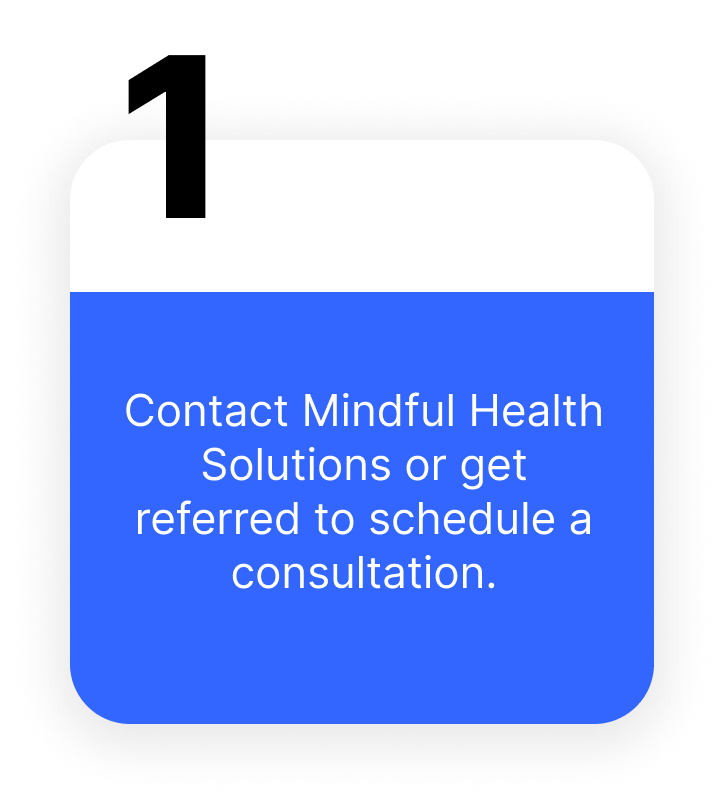
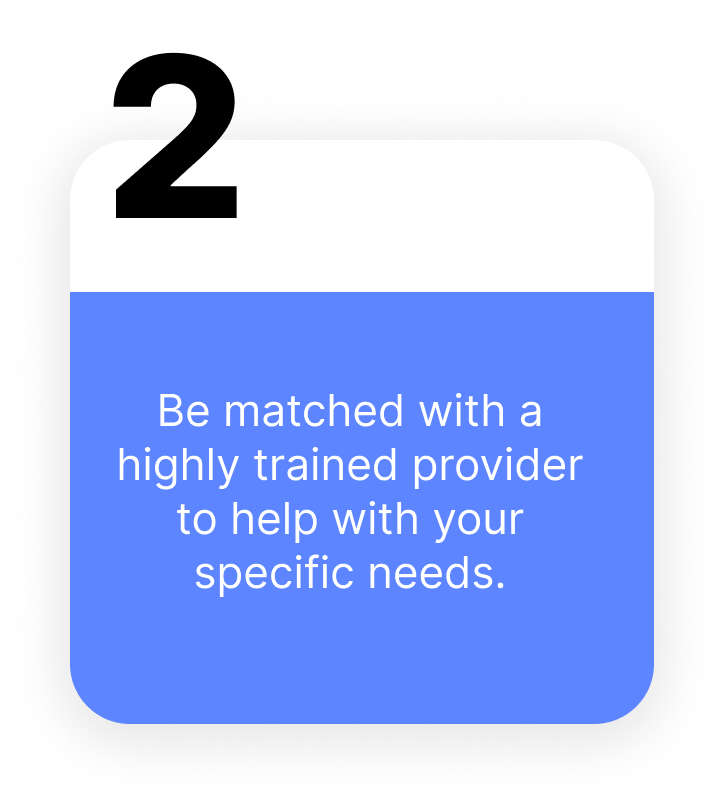
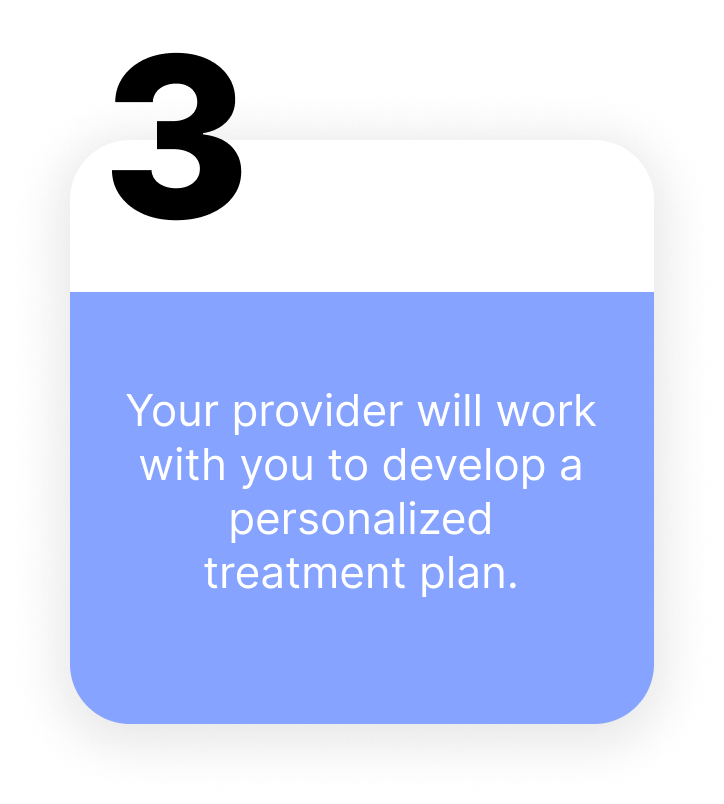
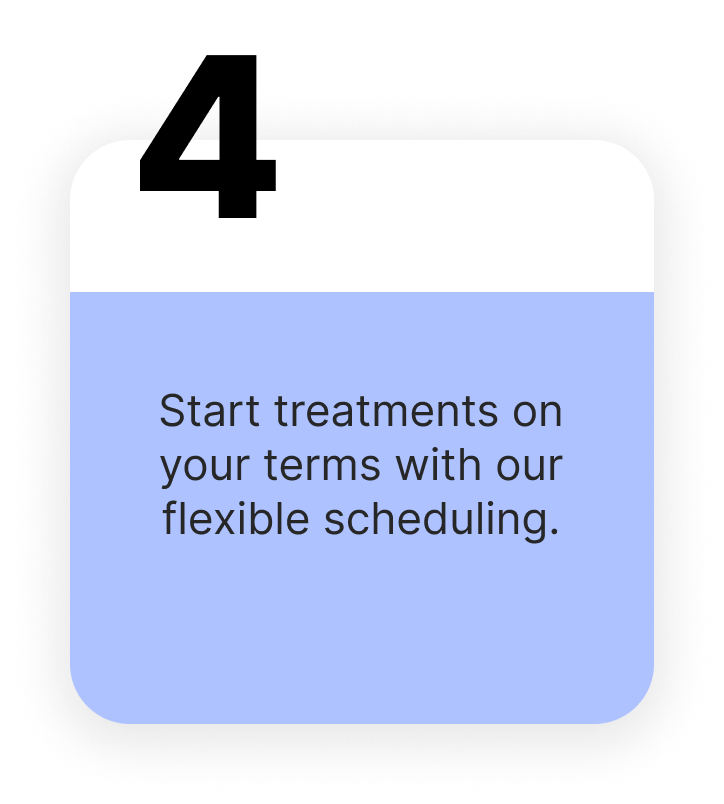
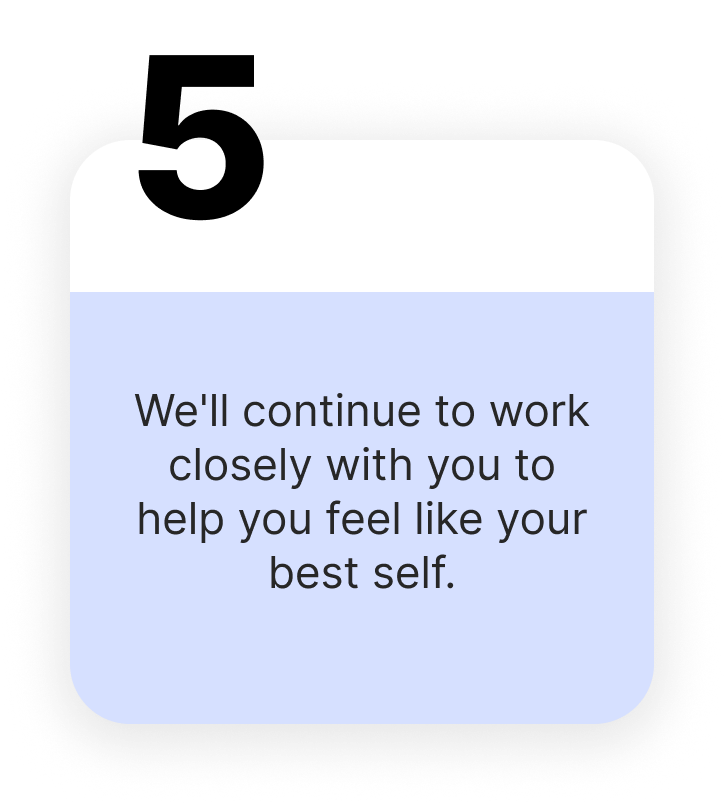
Why Mindful Health Solutions?
We have been a leader in providing rapid TMS therapy to patients like you. Our expert psychiatrists not only provide treatments but are also at the forefront of TMS research. If you are considering Accelerated TMS treatment for depression relief, you can rest assured that you will get the most professional and safe treatment possible with us at Mindful Health Solutions.
Overall, we understand the importance of patient-centered care and understand that one size does not fit all when it comes to mental health treatment. Patients respond well to the dynamic menu of treatments we offer, which includes traditional medication management as well as cutting-edge alternatives.
Mindful Health Solutions also wants to make treatment comfortable and accessible. If patients are unable to physically come into the office or prefer a virtual appointment, Mindful Health Solutions offers telepsychiatry. This allows patients to get care from wherever they are in the state. We also foster a strong culture of Diversity, Equity, and Inclusion. Our therapists strive to embody a sense of awareness, respect, and humility with regard to cultural differences. And last but not least, we accept most major insurances.
Frequently Asked Questions
How does Accelerated TMS work?
Accelerated dTMS uses the same non-invasive technique as regular TMS, where magnetic pulses are directed to specific areas of the brain associated with mood regulation. The key advantage of Accelerated dTMS lies in its efficiency and convenience, making it a fitting choice for those seeking a quicker route to mental wellness without compromising the effectiveness of the therapy. With its promise of reduced treatment time and minimal side effects, Accelerated TMS is a source of hope for many on their journey toward mental health recovery.
What does a course of Accelerated TMS look like?
During an Accelerated TMS treatment, the patient sits in a comfortable chair while the TMS coil is properly set in place on their head. While the machine is running and pulses are being sent to the brain, patients can watch TV, listen to music, or talk with our staff. If they want and are comfortable, they can also have a friend or family member in the room with them during their TMS treatment session.
Because patients are completing several sessions a day during their Accelerated TMS treatment, each session lasts 9 minutes and then there is a 45-minute break. During that break, patients can use their time as they wish. After the break is over, patients will do another 9-minute TMS session followed by another break. This process will repeat for a total of 3-5 TMS sessions.
Generally, patients will feel just like their normal selves after their treatment sessions. They will be able to drive and go back to their regular activities. Some people report feeling a little tired or having a mild headache, but some rest and over-the-counter pain relievers can help.
How successful is Accelerated TMS for depression relief?
Most patients with treatment-resistant depression respond favorably to TMS, and many achieve full remission even after years of illness. Many patients maintain their results well over a year after treatment. Some may require periodic follow-up sessions. Medication and psychotherapy are often more effective after a course of TMS and may help maintain the long-term therapeutic benefit.
How is Accelerated TMS better than medications?
TMS should not impact the medications themselves. However, as TMS treatments continue, there may no longer be a need for the medications that were being used as part of the original mental health treatment plan.
Unlike antidepressants, which temporarily impact mood and behavior by working through the bloodstream, TMS stimulates the brain and delivers localized electromagnetic pulses to the prefrontal cortex, which is the area of your brain that regulates mood. These electromagnetic pulses stimulate neurons, which release neurotransmitters and hormones such as serotonin and dopamine. Many experts believe that depression and other mental health conditions are linked to an imbalance of these neurotransmitters. TMS works to restore that balance and can provide a more lasting impact on relieving depression symptoms than other treatments, such as antidepressants.
However, mental health treatments for depression relief are not one-size-fits-all situations. Because of this fact, treatment plans will vary depending on each patient’s unique needs and concerns. Treatment plans could follow these paths:
- If a person was already taking medications before beginning TMS treatments, they may or may not continue to take them.
- If a person was not already taking medications before beginning TMS treatments, they may or may not be prescribed medications to supplement their TMS treatment plan.
Overall, patients will work closely with their providers to collaborate on a treatment plan that works best for them. And as treatments continue, the plan will be adjusted as needed to make sure patients are continuing on their path to wellness.
What are the side effects of Accelerated TMS?
Accelerated TMS therapy doesn't hurt during or after each session. Generally, patients will feel just like their normal selves after their treatment sessions. They will be able to drive and go back to their regular activities. Some people report feeling a little tired or having a mild headache from the treatment itself or the headpiece. However, some rest and over-the-counter pain relievers can help. Other people report more energy and better focus, as well as the ability to ignore obsessive, anxious thoughts after Accelerated TMS treatment.
More serious side effects happen very rarely, but can consist of:
- Seizures
- Hearing problems from the loud clicking noise that occurs during treatment
- Mania, which is more likely to occur if an adolescent has bipolar disorder
However, our expert providers will use their professional knowledge to help avoid serious side effects like the ones listed above.
Is TMS used to treat anything besides depression?
TMS can be an effective option for patients with bipolar depression and PTSD. Have questions about Accelerated TMS for bipolar depression or PTSD? Reach out today to discuss your treatment options!
